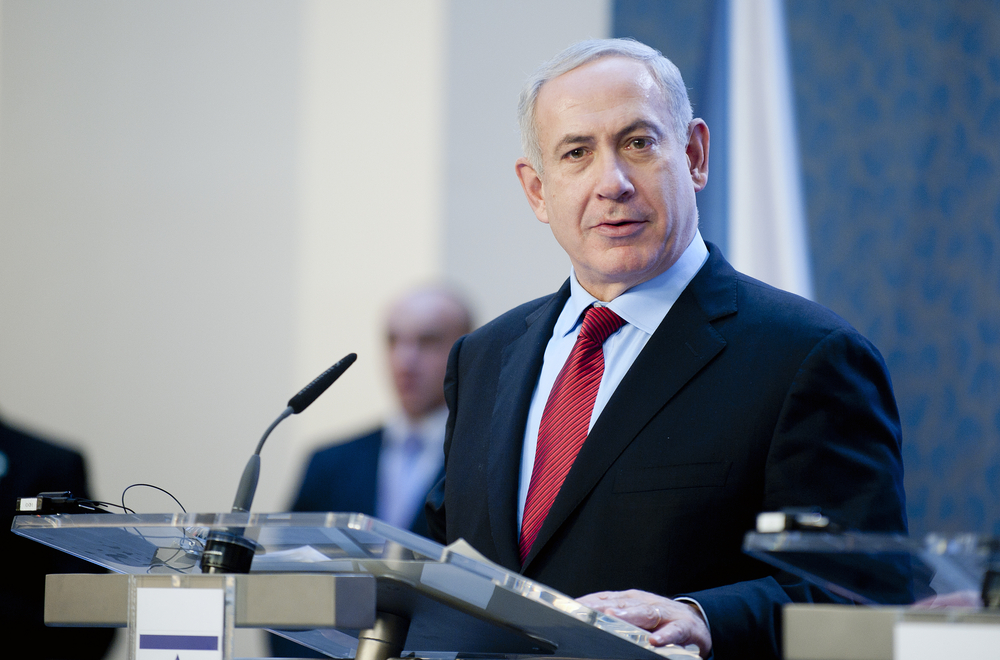
JERUSALEM — Prime Minister Benjamin Netanyahu said Sunday night that Israel and Poland have agreed to hold talks seeking to resolve the uproar over proposed Polish legislation that would outlaw blaming Poland for any crimes committed during the Holocaust.
Earlier, Israel’s Foreign Ministry had summoned a Polish envoy to express its displeasure at the bill. But Polish officials dug in their heels, saying the measure was being misinterpreted and its wording would not be changed.
Netanyahu then spoke by phone with Polish Prime Minister Mateusz Morawiecki late Sunday.
“The two agreed that teams from the two countries would open an immediate dialogue in order to try to reach understandings regarding the legislation,” Netanyahu’s office said in a statement.
The prime minister said at his weekly Cabinet meeting earlier Sunday that Israel has “no tolerance for the distortion of the truth, the rewriting of history and the denial of the Holocaust.”
The lower house of the Polish parliament’s bill calls for prison time for referring to “Polish death camps” and criminalizes the mention of Polish complicity.
The bill still needs approval from Poland’s Senate and president. Still, it marks a dramatic step by the nationalist government to enforce its official stance that the vast majority in Poland — a country that was terrorized by Nazi Germany’s occupation — acted heroically under those conditions. Historians say many Poles collaborated with the Nazis and committed heinous crimes.
The bill has sparked outrage in Israel and suddenly raised tensions with a close European ally. Israel declared independence in 1948 in the wake of the Holocaust and is home to the world’s largest community of Holocaust survivors.
On Sunday, the Foreign Ministry summoned Poland’s deputy ambassador, Piotr Kozlowski, to express Israel’s opposition to the bill.
It called the timing of the bill, passed on the eve of International Holocaust Remembrance Day, “particularly surprising and unfortunate” and said it expected the draft to be amended before final approval.
“The legislation will not help further the exposure of historical truth and may harm freedom of research, as well as prevent discussion of the historical message and legacy of World War II,” a ministry statement said.
Speaking to reporters after his meeting, Kozlowski said the intent of the legislation is not to “whitewash” history. It is already a crime in Poland to deny that the Holocaust happened.
“It is to safeguard it, to safeguard the truth about the Holocaust and to prevent its distortion,” he said of the proposed legislation.
Polish authorities insisted they would not give in to the Israeli demands.
“We will not change any provisions in the bill,” said Beata Mazurek, spokeswoman for the ruling conservative-nationalist Law and Justice party, “We have had enough of Poland and Poles being blamed for German crimes.”
Mark Weitzman, the director of government affairs for the Simon Wiesenthal Center, a U.S.-based group that battles anti-Semitism, called the law “an obscene whitewashing” of history.
He said its wording could be used against Holocaust survivors talking about their personal experiences as well as researchers, teachers or anyone else documenting the Holocaust.
He urged Poland to “immediately terminate this law and put an end to all attempts to distort the history of the Holocaust for political purposes.”
The Polish prime minister on Sunday night compared Poles and Jews to two families who lived in the same house — Poland — before the war and were both victimized by the Nazis.
In a post on Twitter, Morawiecki said: “A gang of professional thugs enters a two-family house. They kill the first family almost entirely. They kill the parents of the second, torturing the kids. They loot and raze the house. Could one, in good conscience, say that the second family is guilty for the murder of the first?”